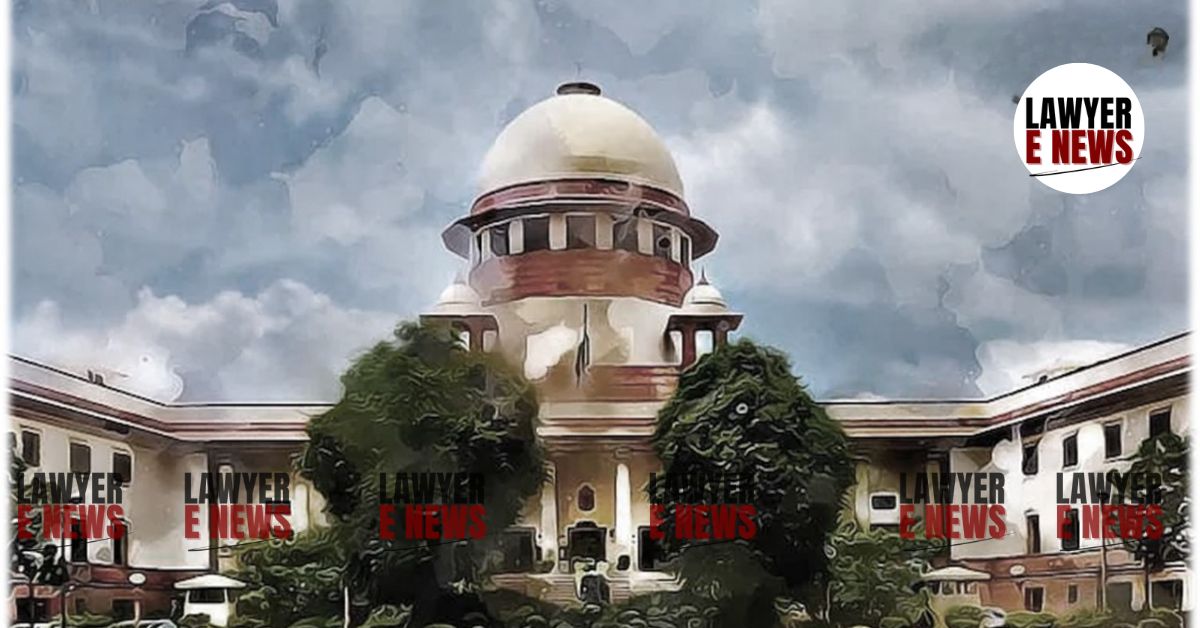-
by Admin
17 February 2026 4:27 AM



“Bail Granted Without Reasons Cannot Stand”: In a sharply worded judgment Supreme Court of India set aside a bail order passed by the Punjab & Haryana High Court, declaring that the High Court’s reasoning was “cryptic” and “unsustainable,” especially in a case involving allegations of a gruesome and premeditated murder. The Bench of Justice B.V. Nagarathna and Justice Satish Chandra Sharma restored the Sessions Court's decision denying bail to the accused and directed the respondents to surrender by June 16, 2025.
The case concerned an FIR (No. 30/2023, Police Station Nangal) lodged against two accused — Mandeep Singh alias Bhoda and Narinder Kumar alias Nindi — under Sections 302, 323, 34, 427, 120B IPC. The deceased, Anil (driver of the complainant), was allegedly killed after being run over and assaulted by the accused during a land dispute.
The complainant, Baljinder Singh alias Aman, challenged the bail granted by the High Court, arguing that the accused were habitual offenders and that the murder was part of a criminal conspiracy. The Court agreed.
“Casual Bail Orders Undermine Justice”: Apex Court Restores Custody in View of Grave Charges
The Supreme Court criticized the High Court for granting bail in a murder case based on inadequate reasoning. The impugned order, passed on November 14, 2024, was found to contain only “cryptic” justification. The Court observed:
“The High Court has set aside the trial court’s well-reasoned rejection of bail and, in a very cryptic reasoning, granted the relief of bail. The gravity of the offence, and the manner in which it was executed, demanded more serious judicial scrutiny.”
The Sessions Court had previously denied bail citing that one of the accused had multiple criminal antecedents, and both were charged with murder executed in furtherance of a conspiracy.
“They Took Him to Hospital, But He Was Already Dead”: Supreme Court Dismisses Plea of Good Faith
The accused had argued before the High Court that they had taken the injured to the hospital, thus indicating absence of intent to kill. The Supreme Court dismissed this as irrelevant, noting:
“The respondent-accused(s) may have carried the injured victim, who later died, to the hospital, but he was actually brought dead. This fact must be considered separately from the core allegation of who committed the offence.”
The Court emphasized that such claims, even if true, could not dilute the gravity of a prima facie case under Section 302 IPC.
Bail Can’t Be Granted When Trial Is Stayed: Court Warns Against Injustice by Delay
An important dimension of the case was that the trial had been stayed by the High Court in another proceeding initiated by the accused to challenge the charge sheet. The Supreme Court found it deeply problematic that the accused were enjoying bail while the trial itself remained frozen:
“On one hand, the respondents-accused have been granted the relief of bail, and on the other, there is a stay of trial. This would result in the accused remaining free while the trial is indefinitely delayed, which is impermissible.”
The Court called this a “double injustice” to the complainant and to the administration of justice.
Bail Cancelled, Surrender Ordered
The Supreme Court ordered that:
The High Court’s order dated 14.11.2024 granting bail is set aside.
The Sessions Court's orders denying bail are restored.
The accused must surrender before the jurisdictional Magistrate or Police Station by June 16, 2025.
If they fail to surrender, the Police must arrest them.
The accused must deposit their passports with Police at PS Nangal by May 19, 2025.
The judgment serves as a stern reminder to courts that bail in serious offences like murder cannot be granted casually or without detailed justification. It reinforces the principle that reasoned orders are the bedrock of fair judicial decision-making, especially where liberty is weighed against public interest and victim rights.
Date of Decision: May 16, 2025
